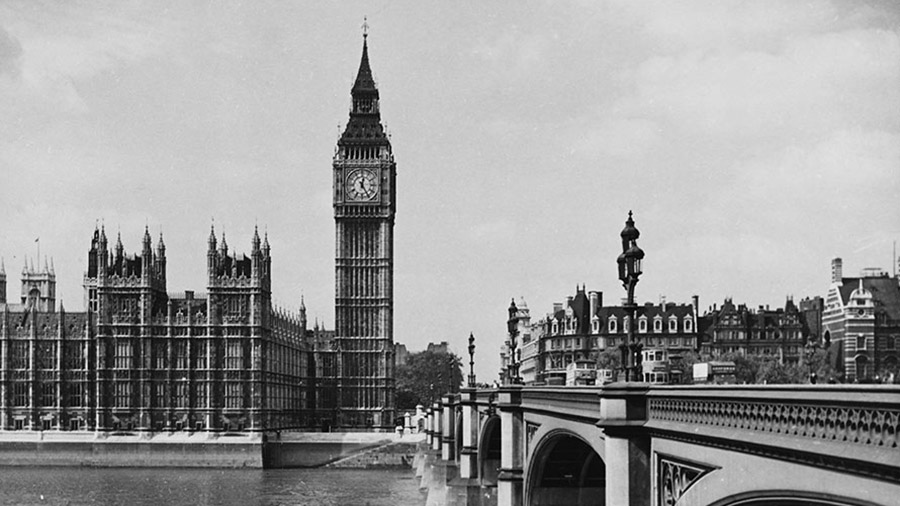Opinion: Might history repeat itself as election looms?
 Westminster in the 1950s © Chronicle/Alamy Stock Photo
Westminster in the 1950s © Chronicle/Alamy Stock Photo I tend to feel melancholic at this time of year. I don’t know if it’s the annual shock of the nights rapidly drawing in, or the nagging guilt that my daughters have gone back to school without me having spent as much time with them as I’d have liked over the summer, or whether it’s just post-harvest exhaustion. Whatever it is, it’s there.
The current chaotic and uncertain state of the world is also contributing.
It is hard not to feel overwhelmed by the combination of issues we are all facing, both immediate and long term, and I need to constantly remind myself to focus only on the things I can control, otherwise I’d be sleeping less than I already am.
See also: Farmer support for Conservatives on the slide, FW survey reveals
So, due perhaps to a mix of all these things, and the resulting desire for reassurance that we can get through these tumultuous times, I find myself missing my grandparents.
They were of the generation that lived with the prospect of Nazi invasion hanging over the country during the summer of 1940.
I often think about how frightening it must have felt at that time, not knowing if they would open the curtains one morning to see paratroopers coming from the sky, let alone if they would see loved ones again.
I wish I had asked them more about it while they were still alive.
But I don’t want to make comparisons between the war years and now; it’s been done enough in the mainstream media by those of a right-wing persuasion over the past few years, and usually for untoward reasons.
Instead, I want to highlight a far less covered, but truly momentous event that occurred in July 1945 when the governing Conservatives were dramatically voted out of office by a landslide Labour victory.
It seems incredible in some ways to us now that it happened.
That just a few short months after VE Day, with all its wild celebrations and promises of a brighter future, the party led by such a talismanic figure as Sir Winston Churchill should lose so badly.
On reflection, perhaps it shouldn’t, as many at that time still felt betrayed by the chronic failure of the Conservative government of the 1920s to deliver “a land fit for heroes” after the previous war had ended, and feared that the same would happen again.
Labour’s manifesto included bold and ambitious plans for nationalisation, full employment, housing, a National Health Service, and a system of social security.
It proved to be hugely popular with an electorate who, understandably, craved a stable and secure future for themselves and their families.
Conservative plans, however, were vague and unconvincing, and appeared to be out of step with public opinion, which turned against them – even more so when Churchill declared that Labour “would have to fall back on some form of a Gestapo” to impose socialism on Britain.
It was a wildly ill-judged statement that seriously backfired.
And I suppose that’s the lesson here. When political parties become detached from the people they represent, and their leaders come to rely on attacks and hollow rhetoric, they tend to eventually, ignominiously lose power.
The next general election isn’t due for a couple more years, but if I was a betting man, I’d put a few quid on history repeating itself.

